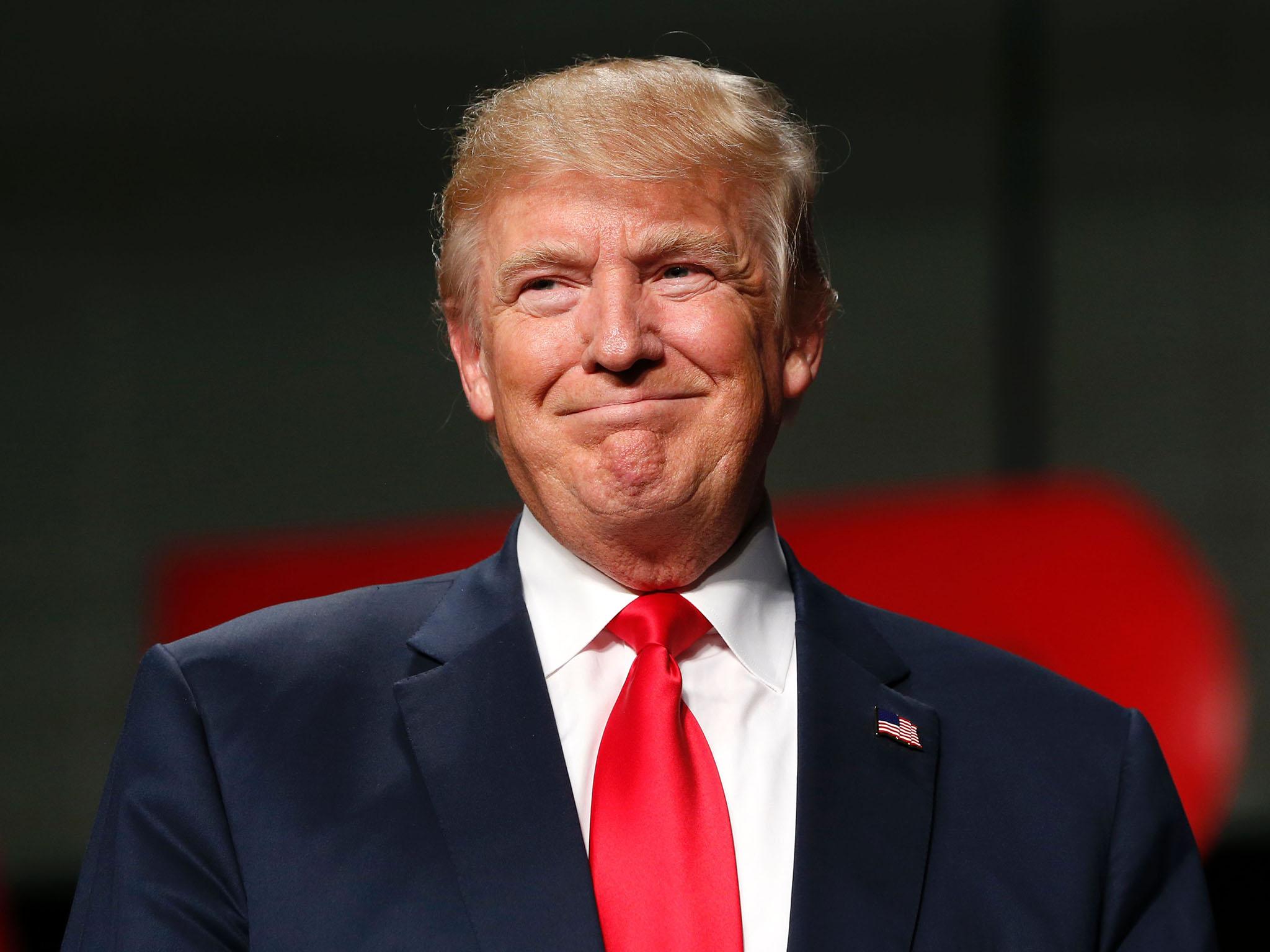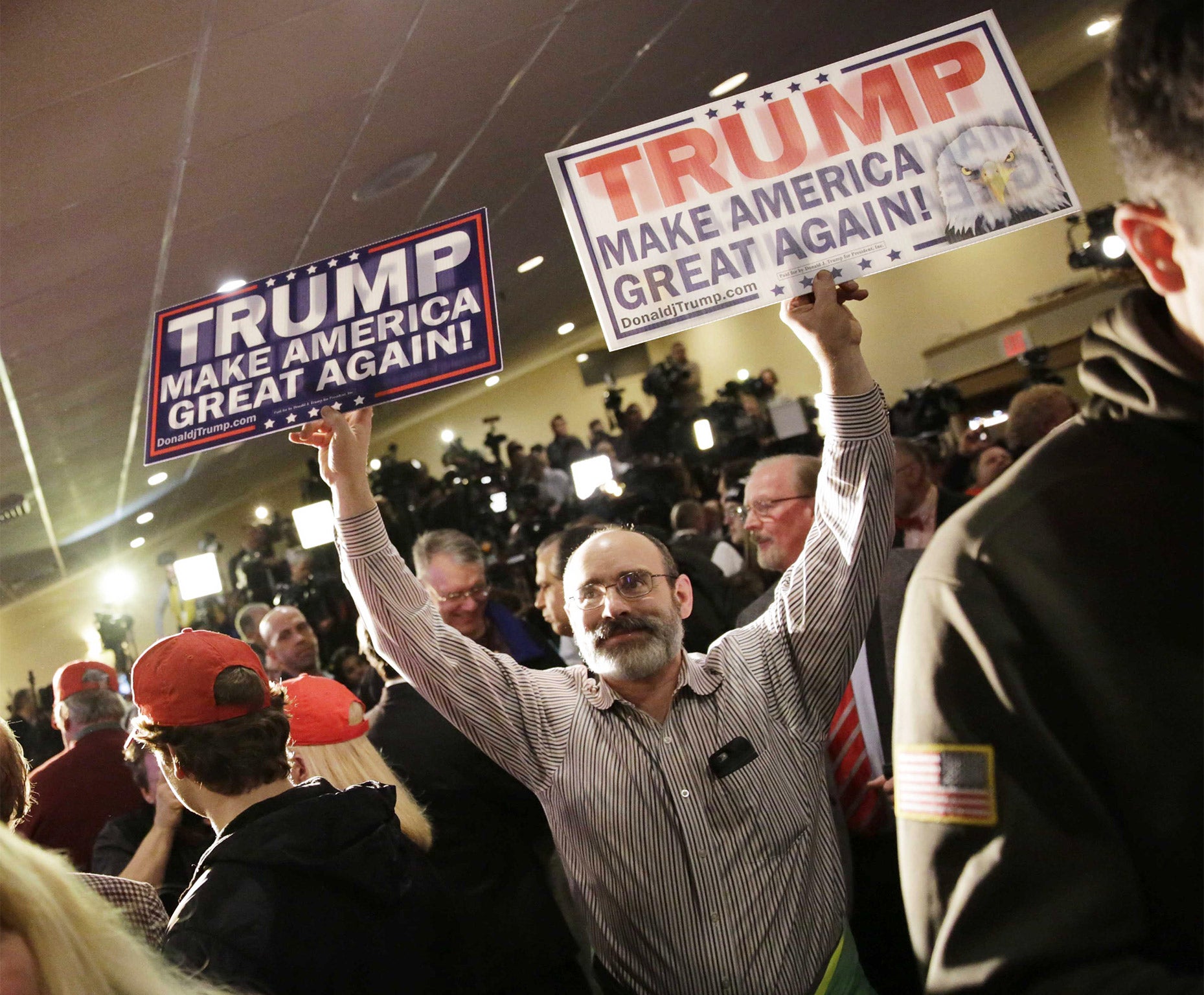The Independent's journalism is supported by our readers. When you purchase through links on our site, we may earn commission.
The stock market doesn't fear a Trump presidency, and neither should you

We finished a campaign in which both sides used weapons-grade persuasion to convince supporters that their opponent’s victory would bring apocalypse, and now many Clinton backers understandably fear doom.
But if you voted for Clinton, don’t fret for our nation’s future, because things almost certainly won’t be any worse for you than if the more right-wing Rubio, Romney, or Cruz had just captured the presidency.
Many on the left think that Trump’s campaign rhetoric showed him to be too stupid and reckless to be president. But Trump’s triumph should convince even Clinton backers that the president-elect is a master persuader rather than a lucky idiot.
Early during the Republican primary, Dilbert creator Scott Adams said Trump’s comments might appear crazy but are actually based on the science of persuasion.
Imagine that you see a tennis player with a seemingly horrible swing win game after game. Although you don’t understand this guy’s playing style, you shouldn’t conclude that he is too stupid to handle a racket. And even if you overhear this player make crude sexual remarks, you still shouldn’t believe him to be an awful tennis player.
Similarly, you saw Trump win the Republican primary and the general election despite the hostility of much of the media and elite Republican party and the release of that nasty Access Hollywood recording. This strongly indicates that although Trump’s statements might have appeared to you to be unhinged bluster, they were in fact well-crafted tools to convince enough voters to support him so that he would win the Electoral College.
During the final debate Trump infamously called Clinton a “nasty woman.”
Nasty is a short, awful-sounding, easy-to-remember word with strong negative connotations. By associating the word with Clinton, Trump caused many people’s brain to automatically downgrade their opinion of the Democratic nominee.

Part of the rhetorical genius of this nasty comment was Trump’s anticipating that the media would endlessly repeat the phrase, thus (irrationally) strengthening its connection with Hillary. Yes, it was unfair for Trump to use this tactic, but don’t think that Trump calling Clinton a “nasty woman” evidences Trump being a mentally disturbed debater who, when president, might similarly insult a female head of state during sensitive negotiations.
Some minorities, including several of my Facebook friends, believe that America rejected them. But remember, Trump won because many citizens who voted to reelect an African American president either backed Trump or decided that the election wasn’t important enough to participate in.
America did not suddenly become more racist, sexist and homophobic in the last four years. Many of Trump’s opponents think that the man is evil, but even if you hate Trump, don’t assume that his supporters have the same view of the person as you do.
Most Americans think that racists are villains, and very few of us would willingly vote for a bad guy as president. If you can’t imagine how a non-racist could support Trump, please accept that this is a limitation of your imagination, not evidence that most Trump voters, including twenty-nine percent of Latino voters, are racists.
Yes, Trump was endorsed by self-proclaimed KKK leaders. But reversed stupidity isn’t intelligence.
The fact that Hitler was a vegetarian in no way morally discredits vegetarianism, and the KKK’s endorsement of a candidate should have zero impact on your opinion of a candidate’s character. If a group of a few thousand pro-ISIS Americans endorsed Hillary, would you really have considered this to be a justifiable reason to fear a Clinton presidency?
And if Hillary had wished to ignore this group to deprive the conservative media of a chance to link her name with the organisation and to deny the group any publicity, would you have taken this failure to denounce as proof that she and most people who would go on to vote for her were ISIS supporters?
Trump will probably build his promised wall, and this will harm Mexicans who would like to enter the United States in violation of our immigration laws.
But the wall will have a “bigly” upside for Mexico. The United States does enormous harm to Mexico by buying illegal drugs that pass through our southern neighbor. If a wall significantly reduces the amount of money Americans pay to Mexican drug cartels, it could well make the average Mexican better off, although of course many individual Mexicans would still on net suffer from the wall.
Some fear that Trump has questioned American’s commitment to protect NATO countries.
But regardless of what pieces of paper say, it's uncertain under any presidency whether the United States' security guarantee to Latvia, Lithuania, and Estonia is credible. The only possible way we could stop a Russian invasion of these countries would be by using atomic weapons, and I very much doubt a President Obama, Clinton, or even Cruz would care enough about Baltic freedom to put at risk millions of American lives.
Trump is merely telling an unpleasant truth that, I strongly suspect, most foreign policy professionals and certainly Putin already know.
France and the U.K. got atomic weapons in part because they didn't believe that the U.S. would be willing to start a nuclear war to protect them from a Soviet invasion. The reason that the U.S. needed to have so many conventional forces in West Germany in the Cold War was that our threat to use atomic weapons to protect West Germany wasn't credible.
Trump won’t significantly set back efforts to reduce climate change, at least not relative to Clinton, because Clinton would have lacked the political will to meaningfully mitigate the problem. The only way for an American president to significantly reduce global warming emissions would be to impose a huge carbon tax and either blow up the international trading system by putting massive tariffs on any nation that doesn’t implement such a tax themselves or pay hundreds of billions of dollars to induce other nations to enact such a tax.
As I doubt Clinton would have taken these steps, Clinton’s actions on climate change would have probably been largely symbolic. True, Trump will probably allocate fewer resources to promoting technological development in solar and wind power than a president Clinton would have, but this will probably be balanced, carbon emissions-wise, by his greater openness to atomic power.
If the left’s worst fears about Trump’s intentions are true and our next president hopes to destroy American democracy, be reassured that America’s founding fathers wrote checks and balances into our constitution in anticipation of future Julius Caesars.
Although the Republicans control the House and Senate, the Republican leadership didn’t defer to candidate Trump, and certainly wouldn’t to a President Trump that threatens their branches’ powers. If nothing else, count on the self-interest of House and Senate Republicans to protect democracy as a means of preserving their own privileges. Also, most of the media still hates Trump and will surely keep a careful watch on him.
Finally, no president could possibly launch a successful coup without having carefully chosen generals that have more loyalty to him than to the constitution, and Trump will likely never have enough time to do this. And Trump’s sudden replacement of most of the generals would set off alarm bells, and certainly cause the Senate to not approve any promotion of military officers whose primary qualification seemed to be personal loyalty to Trump.
James D. Miller is Associate Professor of Economics at Smith College, the host of the Future Strategist podcast, and the author of Singularity Rising.
This is an editorial. The opinions and conclusions expressed above are those of the author.
Read more:
• This chart is easy to interpret: It says we're screwed
• How Uber became the world's most valuable startup
• These 4 things could trigger the next crisis in Europe
Read the original article on Business Insider UK. © 2016. Follow Business Insider UK on Twitter.
Join our commenting forum
Join thought-provoking conversations, follow other Independent readers and see their replies
Comments
Bookmark popover
Removed from bookmarks